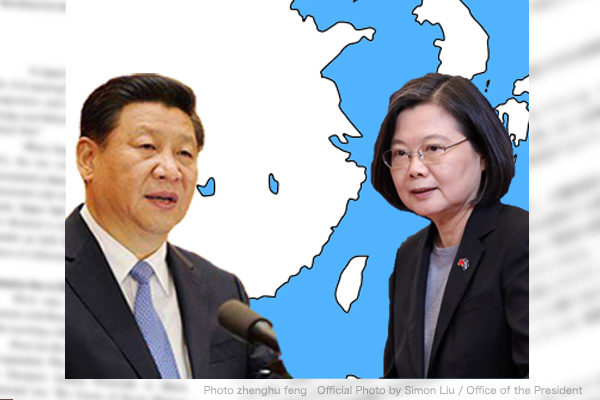Taiwanese President Tsai Ingwen instructed the defense and foreign ministers and other senior administration officials at a meeting of the National Security Council on October 31 to make full preparations for any assumed contingency in connection with rising military tensions in the Taiwan Strait.
Chinese forces have repeated provocative actions since last summer, including a series of drills near the Taiwan Strait and military planes’ frequent incursions into Taiwan’s air defense identification zone. From the beginning of this year to October 7, a total of 1,710 Chinese military planes intruded into the Taiwanese ADIZ, including 49 that crossed the center line of the Taiwan Strait, according to the Taiwanese Defense Ministry. Both numbers are the highest in three decades. In response to Chinese planes’ incursions, Taiwanese fighter aircraft scrambled to intercept them. A former senior Taiwanese official said he viewed China as “in a quasi-war” with Taiwan.
The standoff could escalate into armed clashes
Tsai and her aides are concerned that China could enhance military pressure on Taiwan during the U.S. political transition between the November 3 presidential election and the presidential inauguration on January 20, leading some accident to escalate into an armed clash. U.S. forces might have shared the concern. U.S. naval ships have been sent to waters near the Taiwan Strait to increase alert levels. On October 8, a U.S. MC-130J special operation aircraft flew over the Taiwan Strait to warn against Chinese forces.
Behind China’s toughened attitude against Taiwan has been its dissatisfaction with recent closer relations between the United States and Taiwan. The U.S. Trump administration sent Health and Human Services Secretary Alex Azar in August and Undersecretary of State Keith Krach in September to Taiwan, launching effective government-to-government interchange in the absence of bilateral diplomatic relations. The U.S. has also announced a series of plans for arms sales to Taiwan.
China’s Xi Jinping government has suspected the U.S. as supporting Taiwan’s independence implicitly and attempted to coercively suppress Taiwan’s independence movements, according to a Chinese reporter familiar with the Taiwan issue. The Chinese actions may have stimulated Taiwanese patriotism to the contrary.
A possible spillover of an armed clash into Okinawa
A poll announced by a Taiwanese think tank on October 24 found that a record high of 77.6% responded that they would “fight for Taiwan” in the case of Chinese invasion. Behind the figures is said to be a rapidly increasing number of Taiwanese who do not want to see Taiwan being annexed to China after the enforcement of national security law in Hong Kong in June.
As any armed clash between China and Taiwan could lead U.S. military bases in Okinawa to be attacked by China, it should not be considered by Japan as someone else’s affairs. Japanese people should pay more attention to the Taiwan Strait situation.
Akio Yaita is Taipei Bureau Chief of the Sankei Shimbun newspaper.


